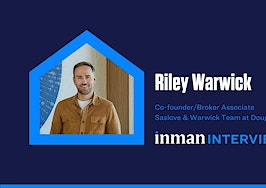Whether you’re a rookie agent, a rising team leader or an established veteran broker, we can all benefit from sharpening our skills. Follow our “Back to Basics” series to learn fundamental strategies, tactics, philosophies and more from real estate pros across the industry.
Social media has become an inherent part of modern, connected life and an essential resource for many people looking to make connections. That’s also true for real estate agents and their businesses, so here are some tips to get you started.
The German statistics, market research and opinion aggregator Statista reports that as of 2018, there were 243.6 million total social media users in the U.S. alone. That’s about three quarters of the U.S. population. The different social media platforms enable businesses to showcase their realms of expertise, and to reach new prospects by creating business pages and buying ads.
When someone uses the term “social media,” Facebook and Instagram are usually the first platforms that come to mind. While countless companies are classified as social networks, we will focus on the three most relevant platforms for agents and brokers: Facebook, Instagram and Nextdoor.
Since its founding in 2004, Facebook has established itself as the United States’ largest social network, with almost 205 million users. In addition to most Americans having a profile, nearly every major company has a commercial page.
Corporate accounts allow companies to easily connect with consumers both organically through their Facebook pages and with paid ads.
As a new real estate agent, you have access to the same platforms as big companies like Nike or even Inman. Making a business account is easy, and once established, you can share your opinions on the market and promote your services through the ad module. Using this tool, you can target users by zip code, income level, and marital status.
Although the highly praised “likely to move” filter is no longer active, you can still target groups that you believe are likely to move.
Simply use demographics and a few assumptions about your target market in your custom ad filter. This may include new married couples or simply prospects in particular age groups.
For example, you can target young professionals by filtering for users who are between the ages of 25 and 30, in a relationship, and make between $45,000 and $100,000. Based on these demographics, you may deduce that those in this group may want to settle down and can afford to buy a home. Therefore, they are likely to move.
While ad pricing depends largely on the complexity of your filters, I recently ran a 15 day ad that targeted 2,000 people in a specific age group and zip code for about half the cost of a direct mail campaign. Ads are relatively inexpensive, so it’s worth further research and experimentation if you’re seeking to expand your reach.
Instagram
While Facebook was already wildly popular, its photo-sharing app Instagram has helped expand their user base. The old adage is that “pictures speak a thousand words” so it’s only natural that a social network based around pictures can be a valuable resource.
Instagram allows users to create a profile on which they can post photos and comment on other users’ posts. After posting a photo, it can be tagged with a location and a “hashtag.” These are unique phrases that other users can search for.
Agents can use these simple features as basic online marketing tools. For example, say you’ve listed a house in Ann Arbor, Michigan.
You can make a post, in which you can attach multiple photos. Then, you can tag the location as Ann Arbor, Michigan, and add the hashtag #annarbor. This way, anyone searching for this city or the hashtag #annarbor will see your listing photos.
Instagram is not a stand-alone marketing platform, but rather another way to reach potential clients in the digital age. After all, an effective marketing strategy includes reaching a large amount of prospects using a variety of methods.
Nextdoor
This app is a relatively new entrant to the market but is quickly growing. Launched in 2011, Nextdoor connects neighbors to create small, local networks in which users recommend local businesses and stay informed about things happening in their area. Neighbors communicate with each other in what we consider a block party for the digital age.
As a “neighborhood sponsor,” you are able to promote your services directly to residents of specific zip codes. This should be particularly interesting for agents because, per Nextdoor’s site, 74% of users are homeowners.
Unlike Facebook, where any business can post ads targeting specific zip codes, neighborhood sponsorships are limited. This means there is less chance of a market becoming saturated.
As an example, I requested information about zip code 68116. For $183 per month, I’d be 1 of 5 agents able to target 39 total neighborhoods. While this may seem expensive, it’s a compelling value because ads are put directly into user’s feeds all month long.
Getting involved in local discussions on Nextdoor and making yourself a useful resource to members of local neighborhood discussions is also a great organic way to make a name for yourself and pique the interest of potential new clients.
Avoid social media mistakes
Social media allows businesses to greatly increase their brands’ reach, but the strategy needs to be professionally executed.
Agents can either promote their services using their personal profiles or through business accounts.
I suggest making a business account, as this allows you to separate your business from your personal profile.
Remember, your personal profile exists because friends and family want to hear from you.
While they may not mind an occasional update on the business, flooding their timelines with your recent deals and listings may cause them to mute your updates or even unfriend you.
By making a business account, your can still showcase your big listings and provide market commentary, but you will do so on a separate page.
Sharing an occasional highlight to your own page will keep your services fresh in their minds while still maintaining a healthy barrier between personal and business dealings.
Business pages also have more functionality. They can be promoted using ads — a feature that personal pages lack.
If you choose to promote your business page using Facebook or Instagram, make sure your personal page is either family-friendly or set to private.
If someone sees an ad, chances are they’ll search for your personal page. After all, real estate is a personal business.
If they see controversial opinions or less-than-professional photos, you risk losing out on an otherwise interested prospect.
Social media alternatives
Real estate agents shouldn’t abandon the traditional tools of marketing even in the age of social media. In fact, these traditional tools can and do often boost marketers’ digital, social and mobile accounts.
Not everyone regularly uses social media, and some people don’t even have accounts.
Successful marketing means reaching the right people with the right product at the right price, so casting your net as wide as possible will yield the greatest results. In light of this truism, our favorite social media alternatives are direct mail and yard signs.
Direct mail
The most common type of direct mail is a real estate postcard.
Agents use postcards because they are simple and effective.
Although the cost per prospect reached is often higher than that of social media, you can be sure that a prospect will see it.
They have to take it out of their mailbox, which means there’s a greater chance you’ll effectively reach your target market.
You can also advertise your listings and social accounts on these postcards to enable new prospects to keep in touch with you, and to keep an eye on what’s going on in the market.
Yard signs
Perhaps the most widely used form of real estate marketing is the trusty yard sign. Putting a “For Sale” sign in a yard not only captures attention for your listing, but also displays your name and contact information.
Signs are typically cost effective and can be reused many times, given you splurge on a sturdy aluminum model.
Again, you can use the signs to advertise your web site and social media accounts to capture the interest of passers-by.
Conclusion
In the digital age, the marketing possibilities are endless.
Effective marketing strategies must include a mix of a variety of channels.
While yard signs and direct mail are industry staples, savvy agents use social media to boost their signals and to target those who should be most attuned to their messages.
Andrew Helling is the founder and editor at REthority in Omaha, Nebraska. Connect with him on LinkedIn.













